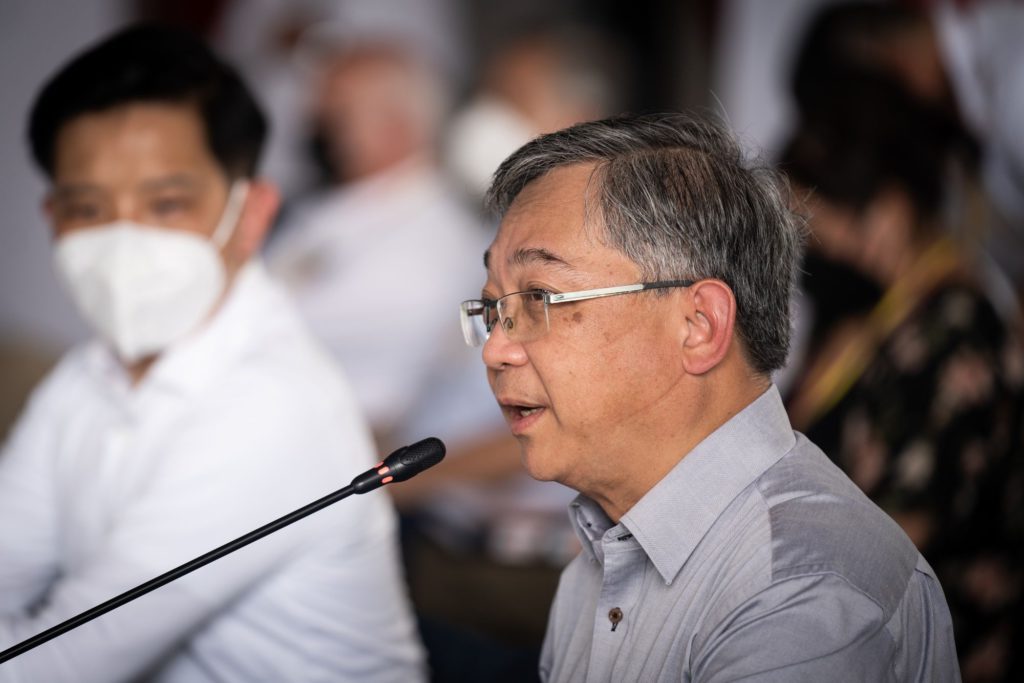(Bloomberg) — Singapore’s government said the impact of the Russia-Ukraine war will be “significant” over time as it disrupts global supply chains and elevates energy costs, underlining the risks for the city-state that is grappling with high inflation.
With Russia as a major oil and gas exporter, global oil and gas prices have spiked and Singapore will be “significantly impacted” as the country imports most of its energy needs, Trade and Industry Minister Gan Kim Yong said in a parliamentary reply on Monday.
He said the crisis will further strain supply chains as Russia and Ukraine are exporters of commodities such as wheat, nickel and palladium. “Supply disruptions for these commodities will raise the prices of goods that use these commodities as intermediate input,” Gan said. “The longer-term and indirect impact of the Ukraine conflict on Singapore will be significant.”
Singapore is especially vulnerable given that January core inflation accelerated for a seventh month to the fastest in almost a decade, driven by food and fuel costs. There are expectations that its central bank will act again in April to tighten policy.
The remarks come after oil stocks soared as the commodity briefly touched $139 a barrel after the White House said it was discussing an embargo on Russian supplies, fanning supply fears in an already jittery market. In addition, Russia’s efforts to halt fertilizer exports, which is made with natural gas, is threatening to further shock global markets and push gas prices higher.
Prices of low-sulfur ship fuel in Singapore, the world’s largest bunkering hub, surged to an all-time high, joining a rally in energy commodities after Russia’s invasion of Ukraine.
Singapore made a rare move last month to purchase a spot shipment of liquefied natural gas in a bid to avoid a near-term supply crunch, according to traders with knowledge of the matter. Natural gas accounts for 95% of Singapore’s power generation mix.
In view of likely supply chain disruptions, Singapore is working with its key companies to review their business continuity plans, in order to minimize hits to their operations. Gan pointed out that supply dislocations for commodities will raise prices of goods that use them as intermediate input, such as the supply of nickel for stainless steel in the manufacturing and construction sectors, or palladium in the semiconductor industry.
Still, Gan also said that the immediate and direct impact on its economy and firms has been manageable for now, since Singapore companies have limited presence in Ukraine and the country doesn’t import many essential supplies from Ukraine and the region. Singapore-listed agri-businesses like Olam International, Wilmar International as well as Food Empire are among those who have operations and links with Ukraine.
(Recasts, updates with background)
More stories like this are available on bloomberg.com
©2022 Bloomberg L.P.











